
Madz Dizon


NASA Uncovers Abandoned US Military Base Beneath Greenland's Ice Sheet
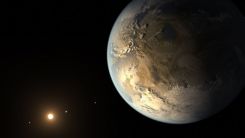
Earth Could Be Saved from a Catastrophic Asteroid Collision, Scientists Say
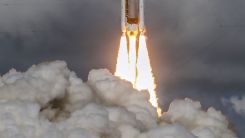
Foul Smell From Docked Russian Spacecraft Forces ISS Astronauts to Seal Hatch

Baby Planet Spotted 430 Light-Years Away, Among the Youngest Ever Discovered

4.45 Billion-Year-Old Meteorite Suggests Mars Once Had Habitable Hot Springs

Bacteria Found on Asteroid Has Shocking Origin

Loneliness Could Manifest in the Way We Talk, Think

What's Inside the Moon? Scientists May Now Have the Answer
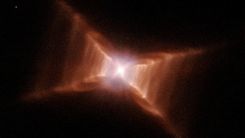
Dying Star in Neighboring Galaxy Captured in Historic Close-Up
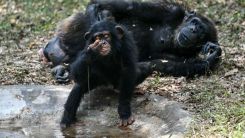
Chimpanzees' Tool Use Could Reveal Hidden Layers of Cultural Evolution
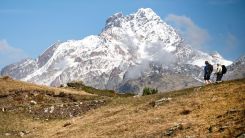
Fossilized Ecosystem Found in Alps After Hiker Notices Strange Rock Marks

Chicken or Egg Debate Finally Solved With Astonishing New Findings

Eli Lilly's Tirzepatide Reduces Risk of Heart Failure Events in Obese Patients, Study Shows

Mars Missions of the 1970s May Have Destroyed Key Evidence of Life

Amber Fragments Discovered in Antarctica Point to Once-Thriving Jungle

SpaceX Launches Mysterious Falcon 9 Rocket with Classified Payload

Upcoming Winter Season Could Shrink Penis Size by 50%, Doctor Warns
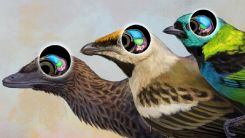
Rare Fossil Reveals Key Clues About Evolution of Bird Brains from Dinosaurs

Early Universe Reveals Three Ultra-Massive Galaxies, Nearly Milky Way-Sized, in First Billion Years

NASA Debunks Media Rumors on ISS Astronauts’ Health

Congress to Hear Testimony on UFOs as Controversial Claims of DoD Disinformation Surface

Leonid Meteor Shower Peaks Soon: Here’s Where and When to Watch

LED Strip Lights on Surfboards May Help Prevent Great White Shark Attacks, Study Finds

Canada’s First Bird Flu Case Detected in Teen, Health Officials Investigating Source

Father-Daughter Duo Crack Mars Signal Code from ESA's ExoMars Orbiter

Glowing Sea Creature Found Miles Below Ocean Surface

Atlantic Comb Jelly’s Age Reversal Surprises Scientists

Voyager 2’s Historic Uranus Flyby May Have Captured Rare Event, Changing Scientists’ View of the Planet

Is the Ozone Layer Repairing Itself? Scientists Think So
Most Popular

Microplastics Are Everywhere — How Plastic Pollution Threatens Wildlife, Soil, and Water

Brain Health Aging Guide: Effective Strategies for Cognitive Decline Prevention and Lower Dementia Risk

How Scientists Use Radio Telescopes to Search for Alien Signals Across the Universe

Mitochondrial Health and Aging: How Cell Energy Drives Modern Anti-Aging Science




